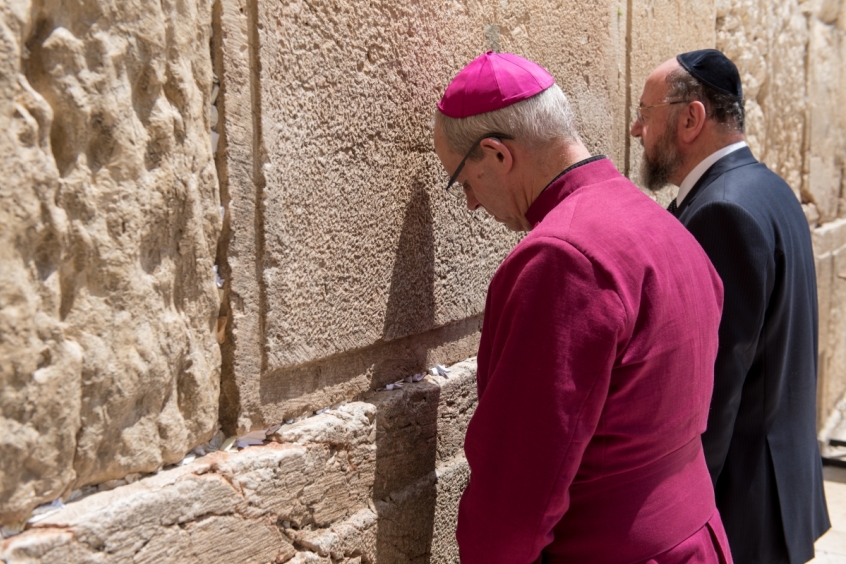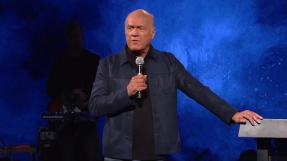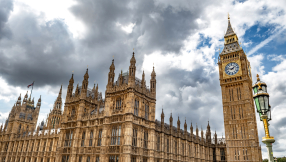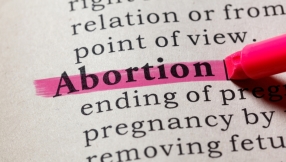Ever a polarising topic, Donald Trump's announcement he would officially recognise Jerusalem as the capital of Israel and move the US embassy there, has prompted wildly different reactions around the world.
While a gleeful Israeli Prime Minister celebrated on the airwaves, the Middle East and the rest of the world looked on in horror and the UK, France, Turkey, the UN, Jordan, Saudi Arabia (the list goes on) lined up to express concern and condemnation.

It is not just political leaders who have starkly different attitudes to Israel. The difference between US evangelicals and their Christian-counterparts around the world was more pronounced than ever this week.
John Hagee, the conservative leader of Christians United for Israel, told Fox News that Trump 'will be remembered for thousands of years for his act of courage to treat Israel like we already treat other nations'.
Other evangelicals, ecstatic about the announcement, including Robert Jeffress, Jerry Falwell, James Dobson, Mike Huckabee, Johnnie Moore, Paula While, Samuel Rodriguez, Tony Perkins and Pat Robertson joined Hagee in praising Trump and their own influence on the White House.
With Catholics in America conspicuous by their absence in commenting on the decision, Pope Francis' response was altogether different as he made a passionate plea for Jerusalem to keep its status quo.
'My thoughts go to Jerusalem and I cannot keep silent my deep concern for the situation that has been created in the past days,' he told his weekly audience at the Vatican on Wednesday.
'I would like to make a heartfelt appeal for everyone's commitment to respect the city's status quo, in conformity with the pertinent United Nations Resolutions.'
He added: 'I pray to the Lord that its identity is preserved and strengthened for the benefit of the Holy Land, the Middle East and the whole world and that wisdom and prudence prevail to prevent new elements of tension from being added to a global context already convulsed by so many cruel conflicts.'
The Archbishop of Canterbury made a more cautious but still critical statement.
'The status quo of the City of Jerusalem is one of the few stable elements of hope for peace and reconciliation for Christians, Jews and Muslims in the Holy Lands,' he tweeted. 'Pray for the peace of Jerusalem.'
So why the dramatic difference? What divides Christian reaction on Israel to such an extent that Welby and Pope Francis sound like they are speaking from a different faith to US evangelicals?
The Bible, on which the Christian faith is largely based, makes numerous references to God's plans and purposes for 'Israel', most notably in the New Testament book of Romans that includes the emphatic 'all Israel will be saved' claim in chapter 11.
Similarly the Old Testament describes a promise made by God to Abraham, the father of the Jewish people, where he says: 'I will bless those who bless you, and whoever curses you I will curse; and all peoples on earth will be blessed through you.'
The dispute over Christians' attitude towards Israel is long-running, immensely complex and deeply entrenched. But at its heart is what to make of the Bible's many references to Israel. Do promises such as these refer to God's people, loosely described as 'Israel'? If that is the case, according to Christian theology, God's people now make up followers of Christ and so the promises apply to Christians.
And more pertinently are the Bible's references to Israel – written between 1,900 and 2,500 years ago – applicable to the modern day political state of Israel created in 1947?
For many US evangelicals the answer is clear – the creation of the state of Israel by the British and Americans in the 20<sup>th century was a fulfilment of biblical prophecy restoring to the Jewish people what was rightly theirs from millennia before. As such they see Christians' role as supporting, defending and advancing the state of Israel, for God will 'bless those who bless you'.
But for Christians such as Welby and Pope Francis the situation is far more nuanced. If the Bible's promises about Israel are referring to God's people generally, rather than the political state of Israel created in 1948, then the situation is more complex.
It becomes more of an issue of justice with both sides considering themselves heavily persecuted. The Israeli's, bearing the scars of the Holocaust are ever mindful that all their immediate neighbours want them exterminated. And the Palestinians, who were forced out of their land and homes with little consultation in an act of staggering colonial imposition, still live under occupation in a land that until relatively recently was their own.
Then, heavily mindful of the Bible's commands about justice and mercy, the invading force of Israel becomes an oppressor to be resisted rather than divine enactment to be celebrated.
Into this complex and toxic mix Donald Trump has thrown a fire bomb and the result is unlikely to benefit either side.













